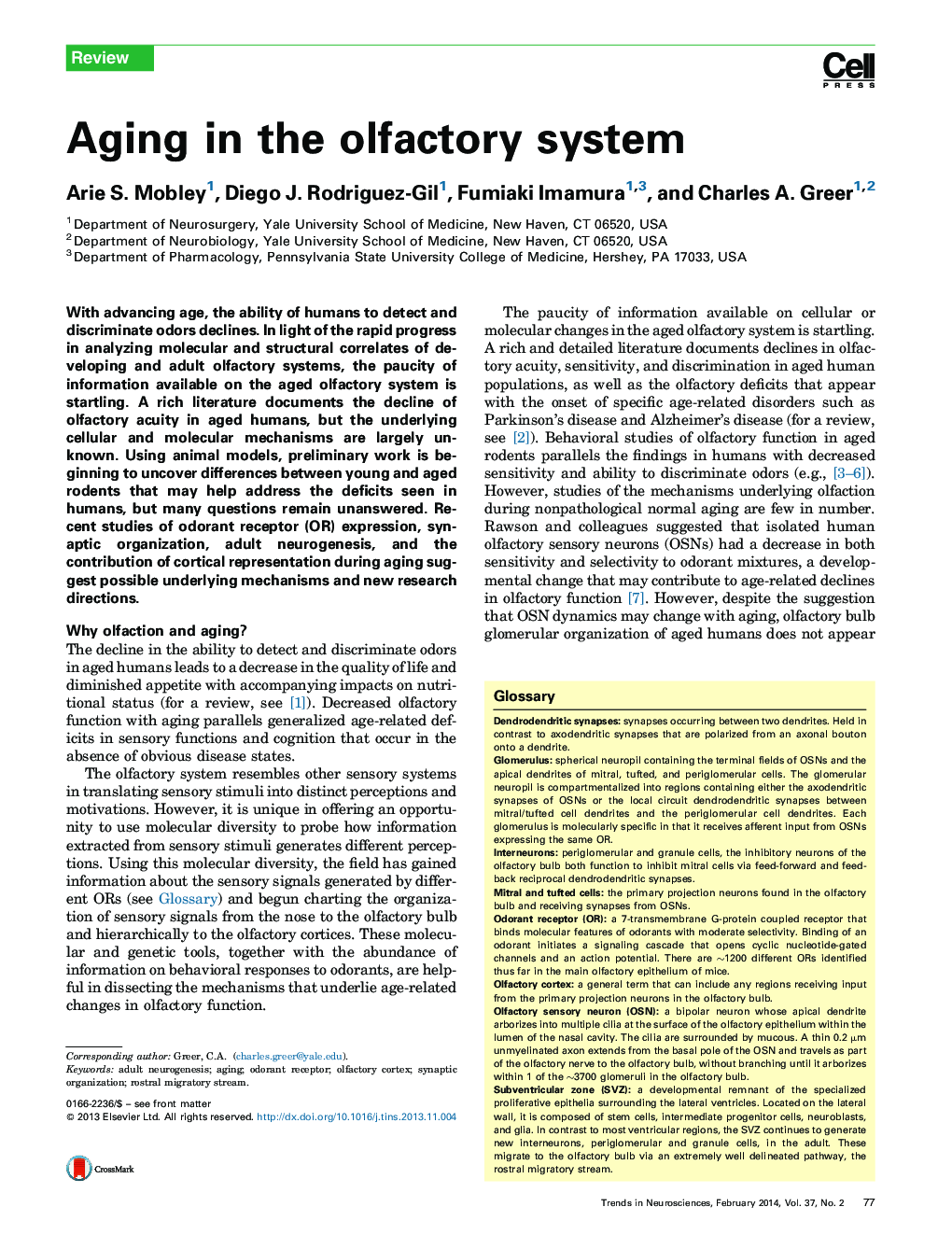| Article ID | Journal | Published Year | Pages | File Type |
|---|---|---|---|---|
| 4354201 | Trends in Neurosciences | 2014 | 8 Pages |
•A review of cellular/molecular changes in the olfactory system during normal aging.•An analysis of changes in neurogenesis that may lead to cell and synapse losses.•Age-related molecular/cellular changes in the rodent olfactory system seem minimal.•Studies covering the entire olfactory system will address functional decline with age.•The olfactory cortex is a promising target for the effects of aging on olfactory cognition.
With advancing age, the ability of humans to detect and discriminate odors declines. In light of the rapid progress in analyzing molecular and structural correlates of developing and adult olfactory systems, the paucity of information available on the aged olfactory system is startling. A rich literature documents the decline of olfactory acuity in aged humans, but the underlying cellular and molecular mechanisms are largely unknown. Using animal models, preliminary work is beginning to uncover differences between young and aged rodents that may help address the deficits seen in humans, but many questions remain unanswered. Recent studies of odorant receptor (OR) expression, synaptic organization, adult neurogenesis, and the contribution of cortical representation during aging suggest possible underlying mechanisms and new research directions.
